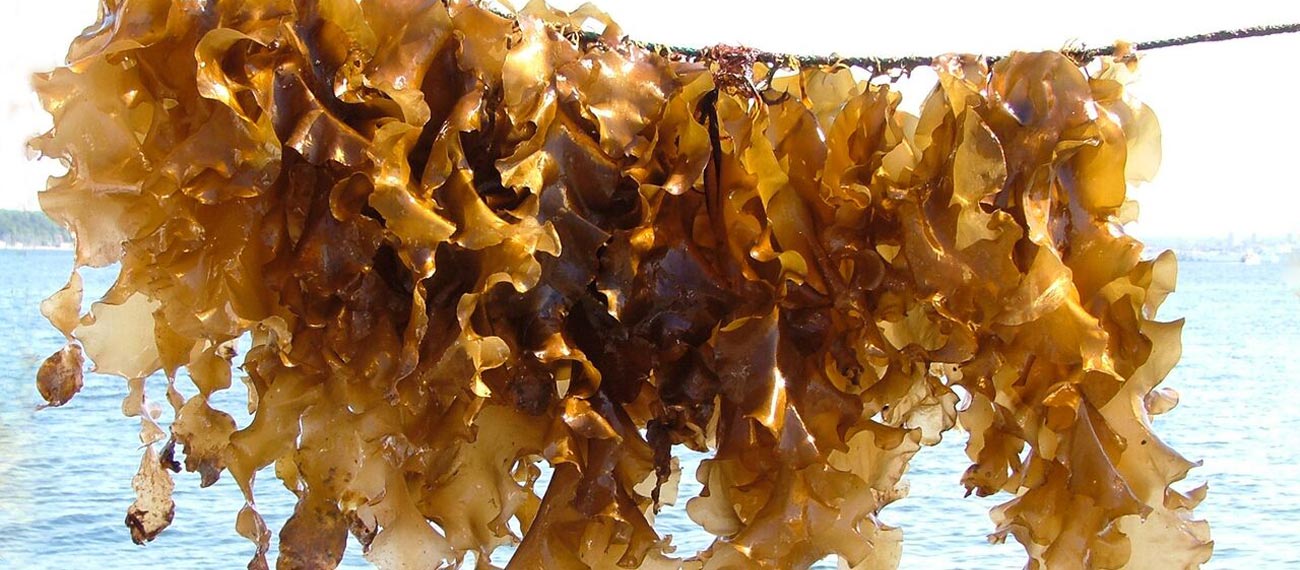CRM: baltic macroalgae in global cosmetics
With the help of the ALLIANCE, CRM is developing a new product based on macroalgae extracts.
The active compound will be used in cosmetics to protect the skin from free radicals. The company
is collaborating with ALLIANCE researchers to find an alternative method of extraction.
The company
The Kiel-based company CRM (Coastal Research & Management) was founded by economics and marine ecology experts in 1994. The company’s aim is to achieve the sustainable use of living marine resources through modern environmental management of the coastal zone and through research on marine natural products. CRM has since specialised in developing sustainable mariculture systems and investigating marine natural substances. These include various different seaweed extracts as antiviral and antitumoral agents as well as collagen from marine invertebrates as bioscaffold material. It has established the first certified organic mussel and macroalgae farm in the Baltic Sea, following the principles of Integrated Multitrophic Aquaculture (IMTA). CRM’s sister company oceanBASIS, founded in 2001, processes the marine natural resources into extracts which find application in different areas, e.g. as active ingredients for cosmetics and food. As well as selling the natural algae extracts to cosmetics companies as an active ingredient, CRM also has its own line of finished cosmetics products called Oceanwell.
The idea
So far, the active ingredients developed by CRM have been mainly bioactive compounds sourced from algae and collagen from jellyfish. Recently, CRM has been developing a new extract, based on polyphenols found in up to four different species of brown algae (fucales) including Saccharina latissima (sugar kelp). The polyphenol-based extract – already identified and tested by CRM – is a powerful antioxidant and can be used in skin care products as a natural “buffer” against harmful free chemical radicals. CRM now hopes to develop these polyphenols into marketable active ingredient. Several challenges remain before the bioactive ingredient can be used in cosmetic products. The main difficulty is presented by the method of extraction, which currently necessitates the use of chemicals that are unsuitable to meet the EU compliance rules for ingredients used in cosmetics. These so-called “simple” extraction methods do not focus on the extraction of a specific compound, but rather they provide a “representative“ cross-section of compounds in the seaweed, depending on the solvent used.
Working with scientific experts within the ALLIANCE allows us to fast-track our product development process.
-

Levent Piker
CRM – Coastal Research and Management
The allies
CRM is collaborating with ALLIANCE partners to overcome this difficulty. The Danish Technological Institue (DTI), the Royal Institute of Technology from Sweden (KTH) and the University of Gothenburg have all signed up as the initial partners for this project. Chemical extraction experts from some of these scientific institutions aim to help CRM find an alternative method. Once a new method has been found, the second challenge is “upscaling” production of the active compound. Currently, the brown algae from which the polyphenols are being extracted are from wild (sea-based) stock, native to the Kieler Förde. CRM already has extensive experience in the sustainable, organic farming of other species of macroalgae (such as sugar kelp), which it rears in land-based nurseries and then transfers to its farm in the Baltic Sea. The company is now exploring cultivation methods to facilitate larger-scale use of the active ingredient.
These challenges are not insubstantial but the company is optimistic that they can be overcome by a collaborative effort. Based on CRM’s experience to date, the resulting Baltic Sea product will appeal to the cosmetics industries both in Europe and globally.





